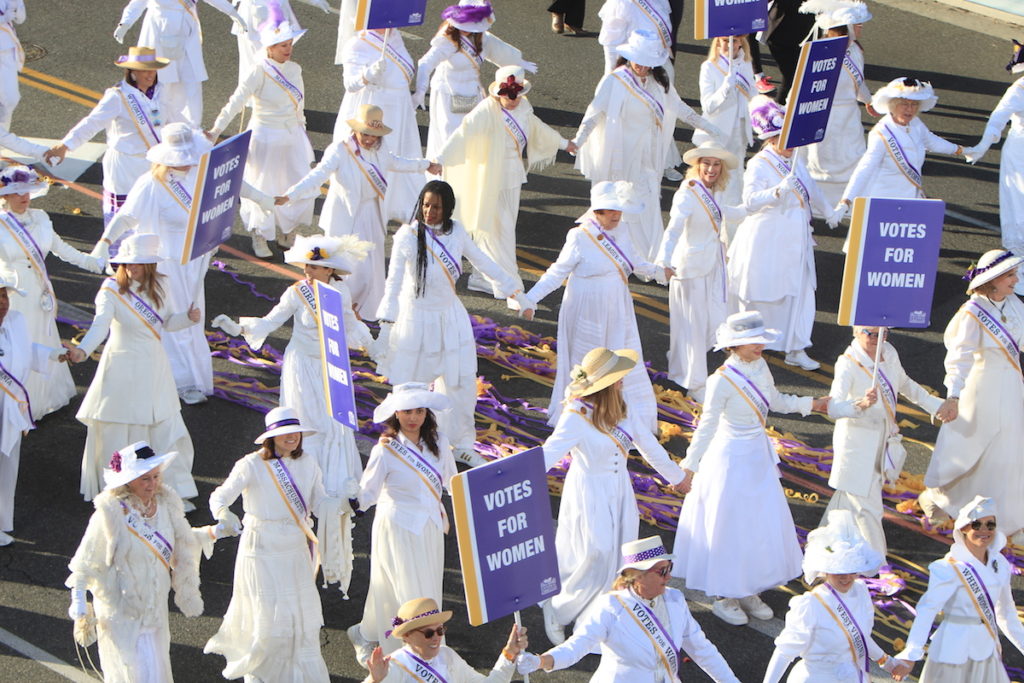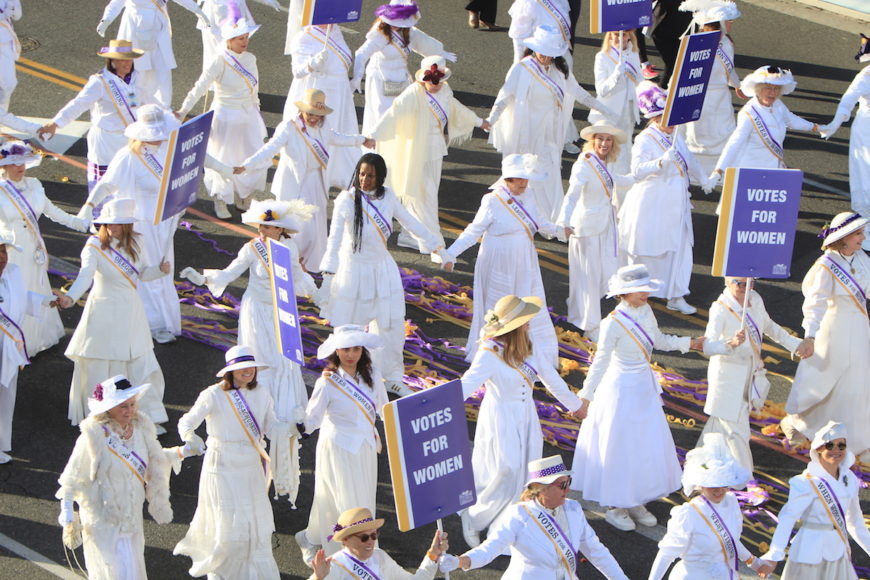
Susan B. Anthony knew it was illegal to vote as a woman in 1872, so why did she do it? More than just a passionate statement, Susan B. planned this moment in history as a strategic bid for publicity in a world that largely ignored woman’s suffrage.
The suffragists did nothing by accident. On the day that Susan B. voted, suffragists across the United States (including influential figures like Sojourner Truth) marched to the polls and attempted to cast their ballot using the language of the 14th Amendment, which stated that all citizens have the right to vote. These women weren’t hoping to sneak under the radar with their “loophole”; instead, they used this message as a nation-wide protest. As woman after woman was turned away from the polls, people and papers started talking about woman’s suffrage.
On Madison Street, Susan B., her sister Mary, and the group of women with them were prepared to face ridicule, reporters, and stubborn opposition. The band was formed of older activists like Rhoda DeGarmo, single women and mothers, younger ladies like Charlotte Bowles Anthony and Margaret Garrigues Leyden, and next-door neighbor Sarah Cole Truesdale. Of the local women who voted on November 5th, none received more backlash than Susan B. herself. Initially, poll workers and officers were cautious in their reactions, unsure of how to handle these polite, feminine law-breakers. Susan B. Anthony knew that this moment could not be lost to history however, and she took every chance she could to spread the word about what she had just done. On November 18th, she was arrested by a local sheriff and told to show up to her trial in a few months.
Since she was not detained prior to her trial, Susan B. traveled locally, delivering her famous “Is It a Crime for a Citizen to Vote?” speech. Newspapers quickly caught on, and the story spread like wildfire. All sorts of opinions about woman’s suffrage began landing on people’s doorsteps, ranging from slander and insults to confusion to praise and admiration. One thing was certain: all of Rochester was talking about women’s roles in civics and soon, the whole nation would follow suit.


Published by